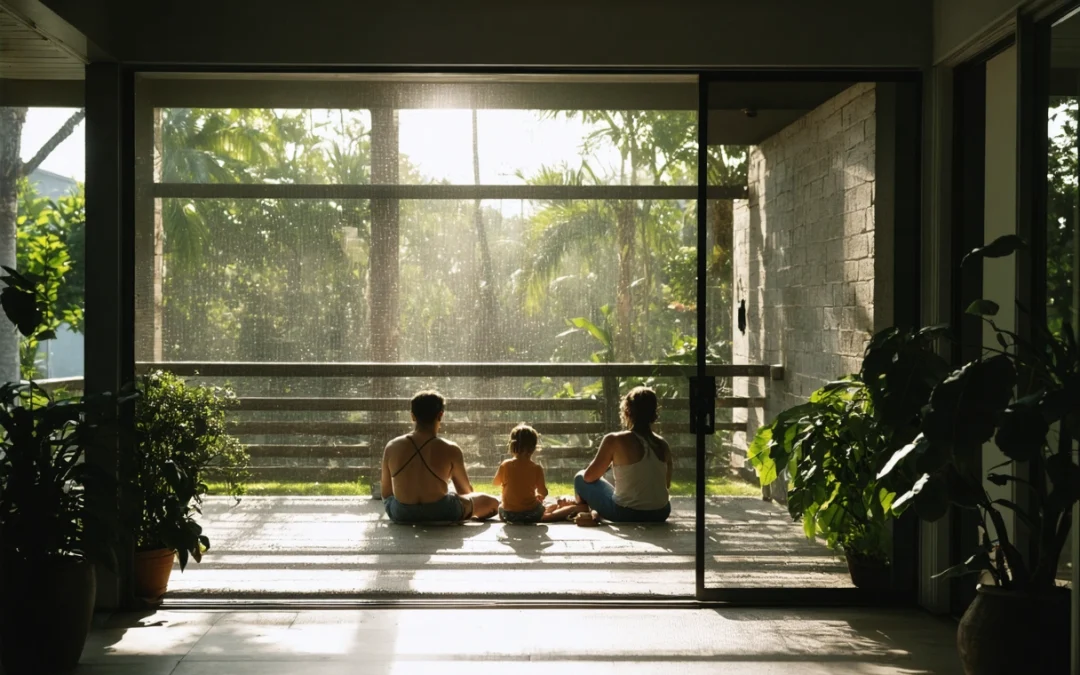How to Choose the Right Screen Enclosure for Your Florida Home
Living in Florida means enjoying sunshine, warm weather, and lush outdoor spaces for much of the year. However, it also means dealing with pests, unpredictable weather, and the desire to make the most of your outdoor living areas. Screen enclosures have become an essential feature for Florida homeowners, offering protection, comfort, and added value to homes across the state. But with so many options available, how do you choose the right screen enclosure for your unique needs?
This comprehensive guide explores everything you need to know to make an informed decision about screen enclosures for your Florida home. We will discuss the different types of enclosures, important material considerations, design factors, local regulations, and the many benefits they provide. Whether you’re considering a pool enclosure, lanai enclosure, or a custom-designed screened room, you’ll find all the expert insights you need right here.
Understanding Screen Enclosures and Their Importance
Screen enclosures are structures designed to surround outdoor spaces with mesh or screen materials. They create a barrier that keeps out insects, debris, and even some weather elements while allowing fresh air and natural light to flow in. In Florida, screen enclosures are especially popular due to the state’s climate and the prevalence of mosquitoes and other pests.
Many homeowners choose screen enclosures to enhance their enjoyment of patios, pools, or gardens while extending their usable living space. These structures also offer a degree of privacy, help maintain the cleanliness of outdoor areas, and can even increase property value. Choosing the right enclosure means balancing aesthetics, functionality, and durability to suit your household’s lifestyle and preferences.
Types of Screen Enclosures for Florida Homes
Before selecting a screen enclosure, it’s important to understand the different types available and how each serves a particular purpose. Let’s explore the most common options for Florida homes.
Pool Screen Enclosures
Pool enclosures are among the most popular types in Florida. They surround the entire pool area, offering a bug-free swimming experience and reducing the amount of debris that enters the pool. These enclosures can be designed with various roof styles, such as gable, mansard, or dome, to match the architecture of your home and provide optimal space and airflow.
By shielding the pool from leaves and insects, these enclosures decrease cleaning and maintenance requirements. They also add a layer of safety, particularly when equipped with locking doors, helping to prevent unsupervised access by children or pets. For more details on pool safety and enclosures, visit the CDC’s pool safety recommendations.
Lanai and Patio Enclosures
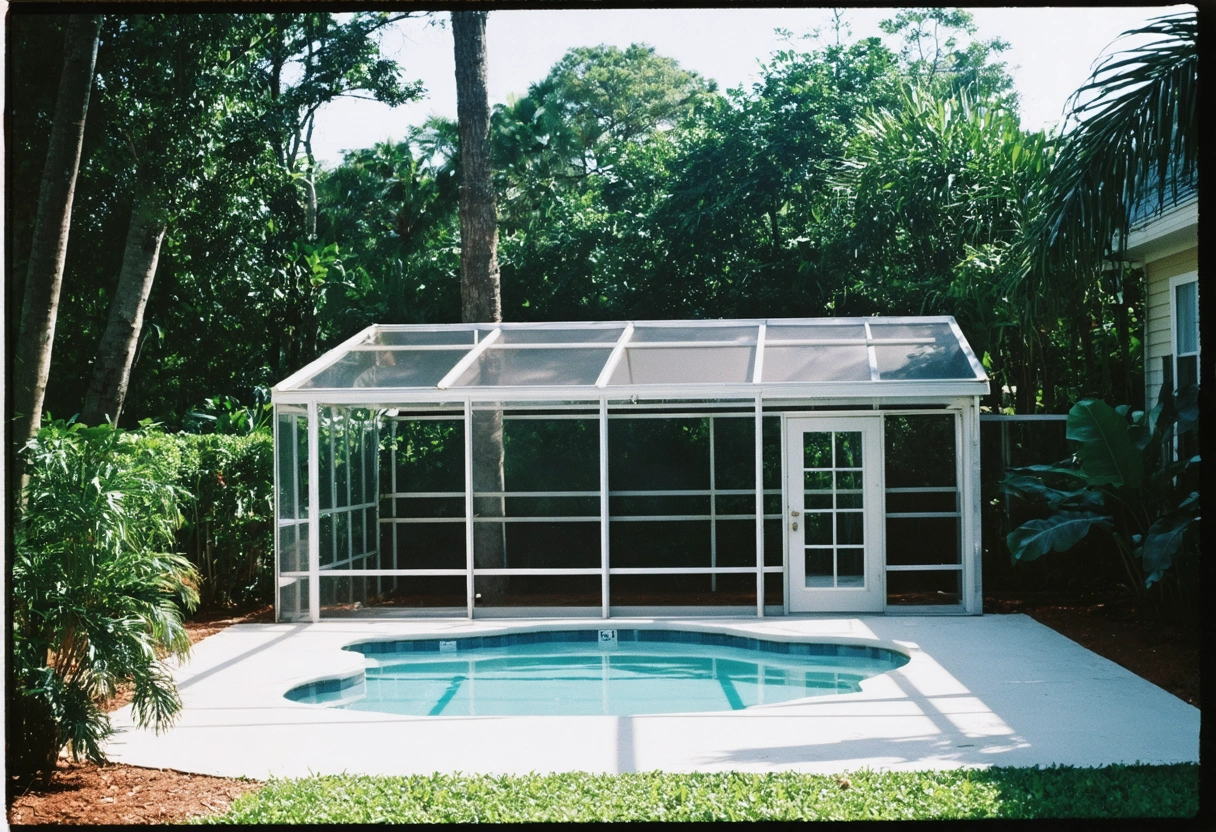
Lanai and patio screen enclosures are designed to create comfortable, breezy spaces for relaxation and entertaining. Whether you have a front porch, back lanai, or side patio, these enclosures allow you to enjoy the outdoors without worrying about bugs or strong sun. They can be built as permanent structures or as retractable systems for more flexibility.
Patio enclosures can significantly extend your living area, making it possible to enjoy meals, gatherings, or quiet afternoons outside even during the peak of Florida’s mosquito season. These enclosures come in a range of styles and sizes, from simple screened porches to fully integrated spaces with lighting and ceiling fans.
Custom Screen Rooms
Custom screen rooms offer versatility and can be adapted for a variety of uses, such as home offices, playrooms, or workout spaces. These enclosures can be attached to the main structure or built as freestanding units in the yard. With the right design, they can seamlessly blend with your home’s architecture while maximizing functionality.
Custom screen rooms are ideal for homeowners with specific needs or unique property layouts. They can be tailored to include features such as insulated roofs, pet doors, or specialized screening materials that offer additional privacy or UV protection.
Material Choices: Durability and Maintenance
Screen enclosures are only as reliable as the materials used in their construction. Florida’s climate, with its high humidity, strong sun, and occasional hurricanes, demands materials that are sturdy and weather resistant. Here are the key material options to consider:
Aluminum Framing
Aluminum is by far the most common material for screen enclosure frames in Florida. It is lightweight, strong, and naturally resistant to rust and corrosion. Aluminum frames can be powder-coated in various colors to match your home and require minimal maintenance. They are also capable of withstanding the wind loads encountered during Florida’s storm season.
When choosing an aluminum enclosure, check for a high-quality finish that resists chipping and fading. You may also want to ensure the frame is engineered to meet local building codes for wind resistance, especially if you live in a coastal area. For more on building codes and wind resistance, refer to the Florida Building Code resources.
Screening Materials
The type of screen material you select impacts everything from visibility to durability. The three most popular options in Florida are fiberglass, polyester, and pet-resistant screens:
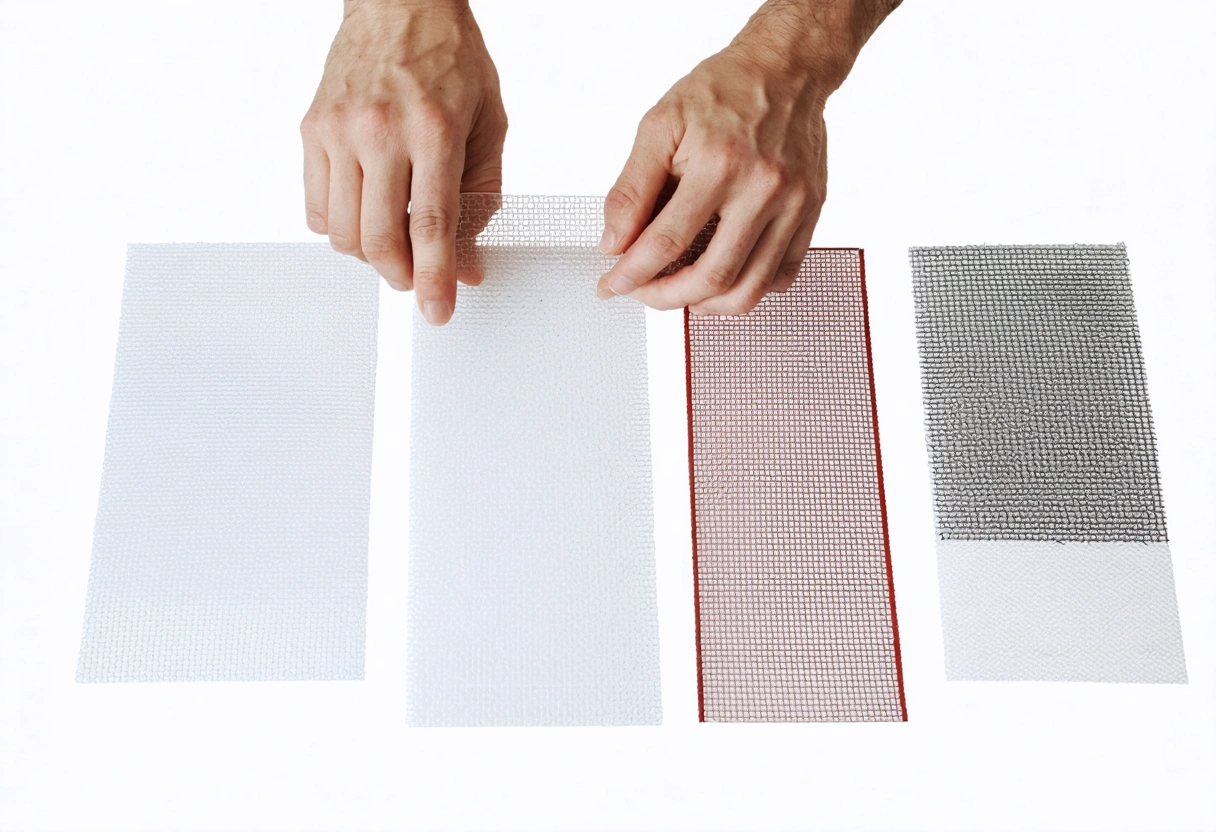
- Fiberglass Screens: Affordable and flexible, fiberglass screens are resistant to corrosion and sagging. They offer good visibility and airflow but may be less durable in the long term compared to other options.
- Polyester Screens: These screens are known for their strength and longevity. They are often coated to resist UV damage and can withstand impacts better than fiberglass. Polyester screens are ideal for homes exposed to intense sun or frequent storms.
- Pet-Resistant Screens: If you have dogs or cats, consider screens made of stronger polyester or vinyl-coated materials that can withstand scratching and clawing.
Some specialty screens are designed to block more sunlight (solar screens) or provide additional privacy (privacy screens). Your choice will depend on your priorities and the specific challenges in your area.
Design Considerations for Screen Enclosures
The right screen enclosure should blend seamlessly with your home’s architecture and landscaping while meeting your functional needs. Thoughtful design can make your enclosure both beautiful and practical. Here are some critical design considerations:
Style and Roof Type
Screen enclosures come in multiple styles, each offering a different look and feel. Popular roof types include:
- Gable Roof: Offers a pitched, triangular design that provides extra headroom and a classic look, ideal for larger patios or pool areas.
- Mansard Roof: Features a flat top with angled sides, maximizing space and creating a modern appearance. This style is common for pool enclosures in Florida.
- Dome Roof: Rounded design that’s visually appealing and great for large enclosures, allowing rain and debris to slide off easily.
- Flat Roof: Clean-lined and simple, perfect for smaller patios or areas where height is restricted.
Choosing the right roof type involves considering both aesthetics and the practical needs of your space. For more inspiration on screen enclosure designs, explore design galleries on Houzz.
Integration with Existing Architecture
Your screen enclosure should complement the style, color, and scale of your house. Consider matching the enclosure’s trim, finish, and roofline with your home’s exterior. Thoughtful integration enhances curb appeal and can even increase the market value of your property.
Additionally, landscaping around the enclosure can create a seamless transition between indoor and outdoor spaces. Native Florida plants, pavers, or water features can further enhance the visual impact of your enclosure.
Functional Features
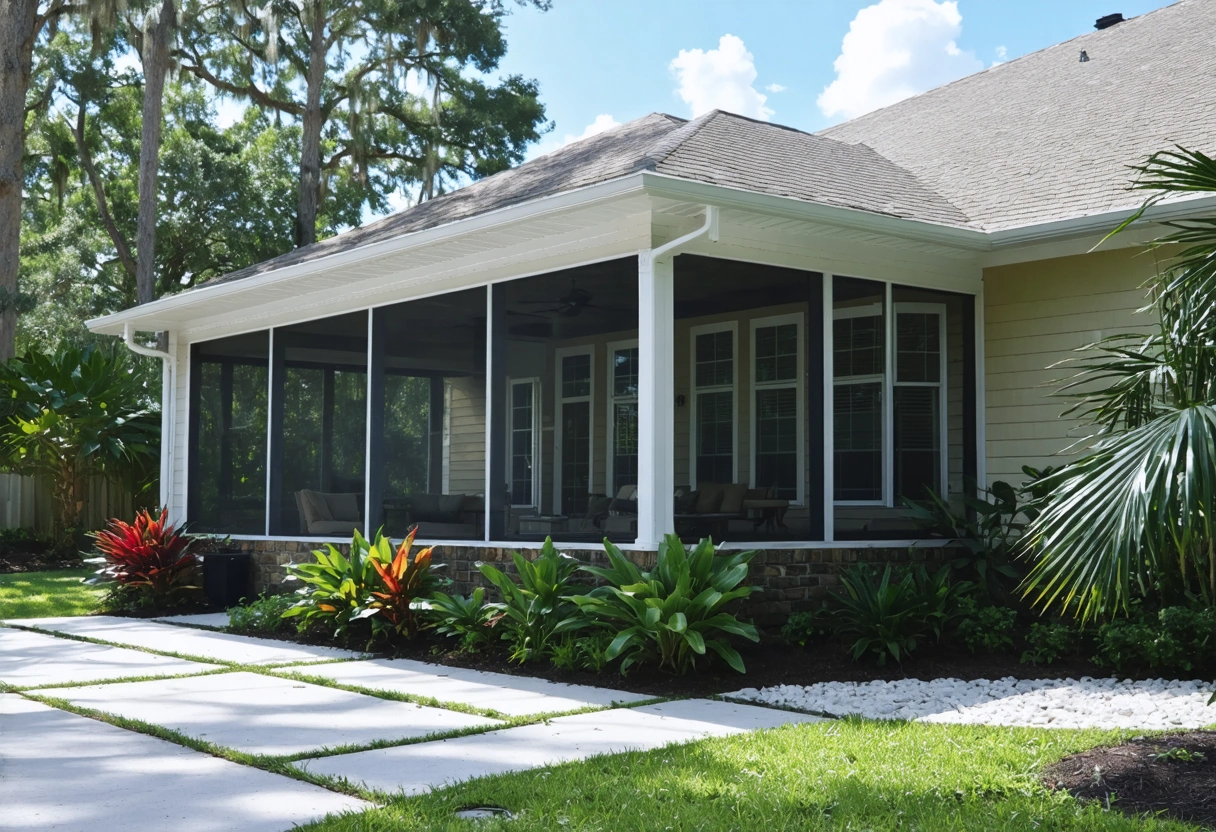
Think about how you intend to use your screened space. Adding features like ceiling fans, lighting, or retractable screens can create a comfortable environment for evening gatherings or year-round use. If you plan to dine outdoors, consider built-in grilling stations or wet bars within your enclosure.
For pool enclosures, including features such as gutter systems, misting fans, and childproof locks adds both comfort and safety. Custom doors, pet access, and storage solutions can also be incorporated for added convenience.
Climate, Weather, and Environmental Factors
Florida’s unique climate significantly influences your choice of screen enclosure. Consider the following environmental factors to ensure your enclosure stands the test of time:
Hurricane Resistance
Florida is no stranger to hurricanes and severe storms. It’s crucial to select an enclosure designed to withstand high winds and flying debris. Many manufacturers offer hurricane-rated enclosures with reinforced frames and heavy-duty screening materials. Be sure to ask about wind load ratings and verify that your enclosure meets or exceeds local requirements.
Maintenance also plays a role in hurricane preparedness. Regular inspections and timely repairs help ensure your enclosure remains strong and secure. For tips on hurricane-resistant home improvements, visit the National Weather Service’s hurricane safety page.
Sun and UV Protection
Florida’s abundant sunshine is one of its greatest assets, but it can also be harsh on people and materials. Some screen materials are designed to block a percentage of UV rays, helping to protect your skin and prevent fading of furniture or flooring inside the enclosure. Using solar screens or tinted panels can also reduce heat gain, making your screened area more comfortable throughout the year.
Moisture and Corrosion
High humidity and salty coastal air can accelerate the corrosion of metal components. Opt for powder-coated aluminum and stainless steel fasteners to resist rust and ensure longevity. Regular cleaning and maintenance also help prevent mildew and mold growth on screens and frames.
Local Regulations and Permitting
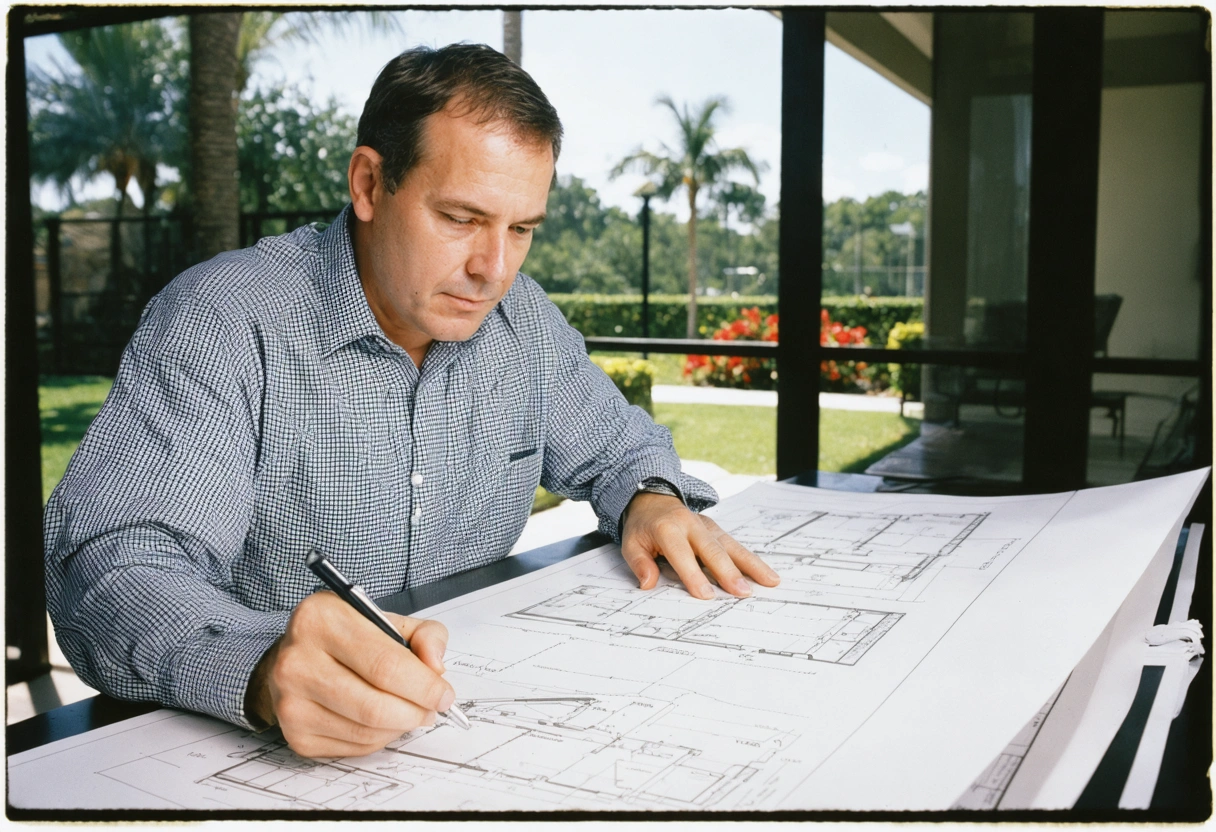
Installing a screen enclosure in Florida often requires compliance with local building codes and permitting processes. These regulations are in place to ensure safety, structural integrity, and proper land use within your community.
Understanding Permitting Requirements
The permitting process varies by municipality, but typically involves submitting plans for review and obtaining approval before construction begins. You may need to provide detailed drawings, engineering certifications, and proof of compliance with wind load standards. Some homeowners associations (HOAs) have additional guidelines regarding the appearance and location of enclosures.
Working with a reputable contractor who is familiar with local regulations can streamline the process and help avoid costly mistakes. For more on permitting and regulations, review the Miami-Dade County Screen Enclosure Guide as an example.
HOA and Community Rules
If you live in a planned community or subdivision, check with your HOA before starting your project. HOAs may have rules about enclosure size, style, color, and placement to maintain a consistent neighborhood appearance. Ignoring these rules can lead to fines or required modifications.
Be proactive by obtaining written approval and sharing your enclosure plans with the HOA before construction. This step helps prevent disputes and ensures your project moves forward smoothly.
Professional Installation vs. DIY
While some homeowners are tempted to tackle screen enclosure projects themselves, professional installation offers significant advantages, especially in Florida’s demanding climate and regulatory environment.
Benefits of Professional Installation
Professional installers have the expertise to design and construct enclosures that meet all safety, structural, and aesthetic requirements. They can recommend the best materials for your location, handle the permitting process, and ensure the final product is built to last. Many contractors also offer warranties on materials and workmanship, providing peace of mind for years to come.
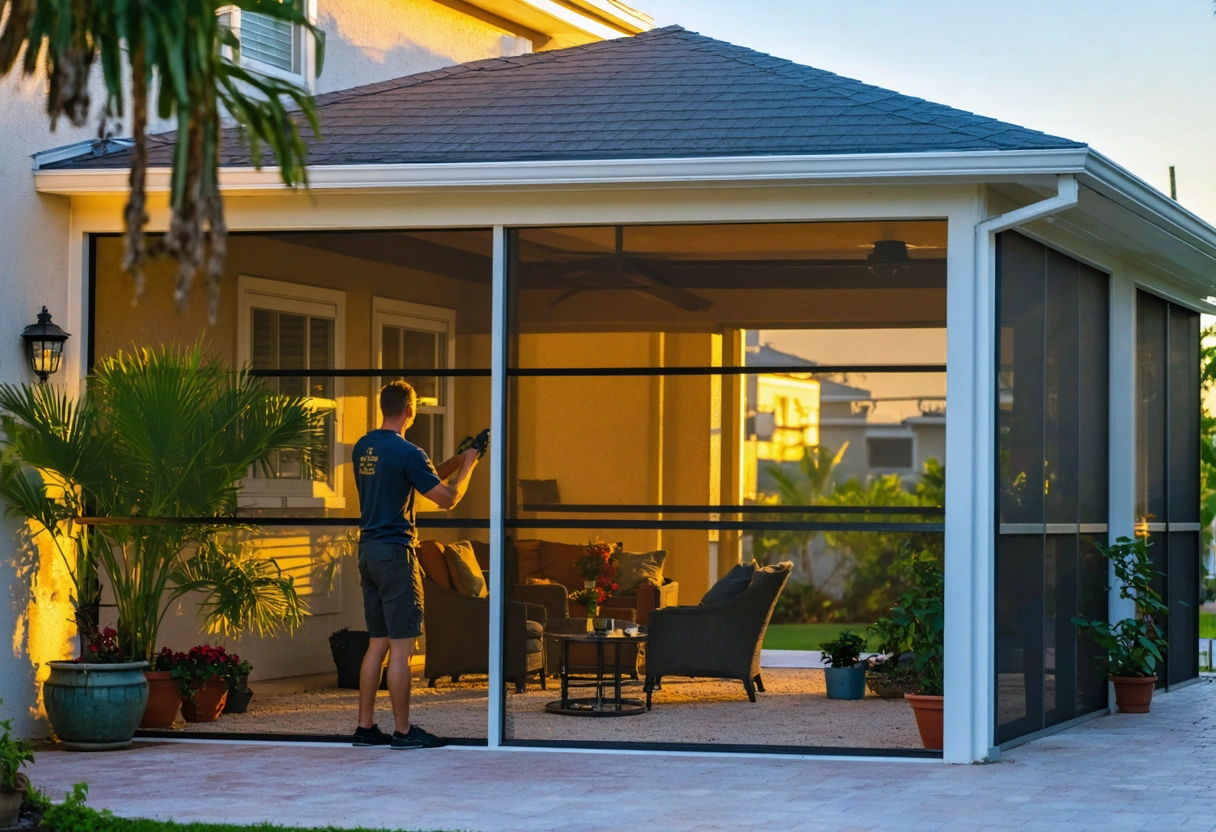
Attempting a DIY enclosure may save money upfront, but mistakes can be costly, especially if the structure fails to meet code or withstand a storm. In most cases, hiring a licensed and insured contractor is the safest, most reliable choice.
Choosing the Right Contractor
When selecting a contractor, ask for references, review past projects, and verify licensing and insurance. A reputable contractor will provide a detailed estimate, outline the timeline, and communicate throughout the project. Don’t hesitate to compare multiple bids to ensure you receive the best value and service.
For more tips on hiring qualified professionals, consult the Angi guide on hiring screen enclosure contractors.
Maximizing the Benefits of Your Screen Enclosure
Once your screen enclosure is installed, it’s time to enjoy the many advantages it brings to your Florida home. Here are some tips to get the most from your investment:
- Keep It Clean: Regularly sweep debris from the floor and hose down screens to prevent buildup of dirt, pollen, and algae.
- Inspect Annually: Check for loose or damaged screens, corroded fasteners, and other maintenance issues at least once a year.
- Personalize Your Space: Add comfortable outdoor furniture, potted plants, or decorative lighting to create an inviting atmosphere.
- Upgrade Features: Consider adding retractable shades, ceiling fans, or integrated speakers for added comfort and enjoyment.
- Stay Bug-Free: Address any gaps or tears in the screening promptly to maintain a pest-free environment.
Screen enclosures can also serve as a backdrop for outdoor parties, family gatherings, and everyday relaxation. With the right care, your enclosure will provide lasting protection and enjoyment for years to come.
Enjoying Outdoor Living in Florida
Choosing the right screen enclosure for your Florida home involves careful consideration of style, materials, climate, and local regulations. By understanding your options and working with experienced professionals, you can create an outdoor space that enhances your lifestyle and adds value to your property.
Whether you opt for a pool enclosure, patio screen, or a custom-designed room, a well-planned enclosure lets you make the most of Florida’s beautiful weather while staying protected from pests and the elements. For additional guidance on outdoor living and home improvement, check out the Department of Energy’s resource on cool roofs and outdoor structures.
Invest in the right screen enclosure today and transform your home into a sanctuary of comfort, safety, and year-round outdoor enjoyment.
Need help with How to Choose the Right Screen Enclosure for Your Florida Home?
